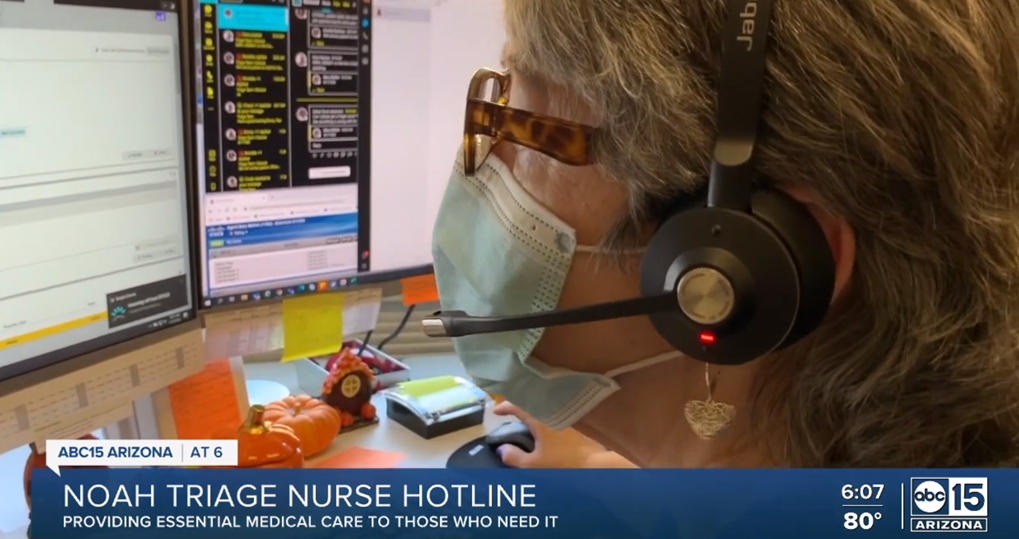By Daniel Davis, MD | Internal Medicine
A study published by the North American Menopause Society found a plant-based diet rich in soy reduces moderate-to-severe hot flashes by 84%. During the study, nearly 60% of women became totally free of moderate-to-severe hot flashes. Overall hot flashes (including mild ones) decreased by 79%.
What does this all mean for diet and menopause? We dive in with Dr. Daniel Davis.
What are hot flashes?
Hot flashes are one of the most common symptoms of menopause with about 80% of American women experiencing them. Hot flashes can be mild or serious enough to impact your day-to-day life. The feeling is usually a flushing warmth or heat in the upper body and face.
Traditional treatment for hot flashes
Most women with mild hot flashes can treat them with small changes: fans, air conditioning, dressing in layers, and avoiding things like spicy foods and stress. For serious hot flashes, women for a long time were given estrogen (a group of hormones in women) therapy. Now we know that these treatments increase the risk of some cancers, blood clots, heart attacks, and strokes! After learning this, many providers began treating serious hot flashes with other medicines like anti-depressants. Diet wasn’t considered in most patient’s treatment plans.
But that changed in March of 2021 when a study in the American Journal of Menopause showed diet might play an important role in menopause and hot flashes.
How does diet impact menopause?
Scientists have known for a long time that not all women have hot flashes like American women, particularly those countries not following a western/American diet. In countries like Japan and other parts of Asia, only about 15% of women develop hot flashes compared to 80% of American women!
While researchers are still figuring out why 65% more American women have hot flashes compared to Japan, diet is top of mind. People living in Asian countries usually eat less animal products (meat, dairy), eat more vegetables, and have other differences.
How did the study work?
The March 2021 study looked at women all experiencing the same hot flash symptoms, and randomly put them in two groups and watched they symptoms:
- Group #1 – Dietary Changes – low fat vegan diet
- Group #2 – No Dietary Changes – known as the control group
Women in group #1 with the vegan diet saw a 79% decrease in all hot flashes. Women in group #2 had a 49% decrease.
For severe hot flashes – the kind that disrupt daily life – women in group #1 had a decrease of 84%, while women in group #2 saw severe hot flashes decrease 42%. When it came to less severe hot flashes (mild or moderate), 59% of the women on the vegan diet in group #1 said they didn’t have ANY!
The vegan diet group also lost a significant amount of weight and had other health improvements compared with group #2 that did not change their diet.
What does this mean about estrogen, diet, and menopause?
Estrogen is still an important factor for menopause and hot flashes. But doctors and researchers want safer ways to replace estrogen. One way is diet.
Luckily most plant foods – like soybeans and tofu – have estrogen-like nutrients that help during menopause. What’s even more exciting is that these foods have health benefits, like decreasing the risk of breast, prostate, ovarian, and uterine cancer.
People concerned about children or males consuming estrogen don’t need to be. There isn’t a hormonal effect on men or on children’s normal development from foods. Most people can and should consume soy. If someone has a soy allergy, which is rare, they should not treat hot flashes with soy foods.
What about estrogen supplements for menopause?
I recommend against consuming phytoestrogen supplements (plant-based estrogen-like pill). Herbal supplements in the USA often contain ingredients not on the label and they aren’t regulated by any government agency, so we really don’t know what is in them or if they provide any benefits. Additionally, not all plant-based estrogen-like nutrient pills are the same. Some have potentially risky plant estrogens being sold as safe supplements.
What does Dr. Davis recommend?
As a doctor, I recommend you talk to your primary care provider or registered dietician if you are working with one before making any major changes to your diet. If you want to make an appointment with a dietician, NOAH’s has a team of registered dieticians here.
Plant based diets, like a vegan diet, can have a lot of health benefits and a well-planned vegan diet is good for anyone according to the American Dietetics Association. Eating a plant-based diet can also prevent and be part of a treatment plan for diabetes, heart disease, hypertension, cancer, and obesity.
What now?
This study shows that diet can have a tremendous impact on menopausal symptoms. The vegan diet in this study is safe and could lead to many other benefits. Ask your medical provider or dietician if you can give it a try.
You can read more about this study here, and find the full scientific paper free here.



